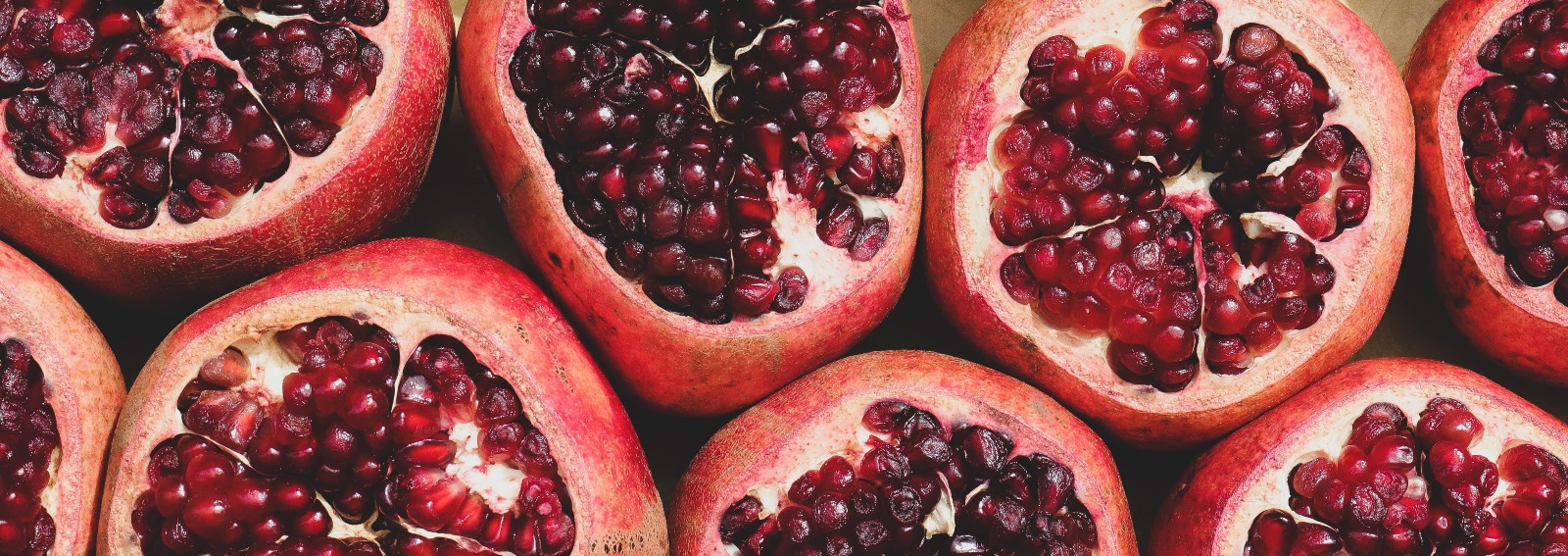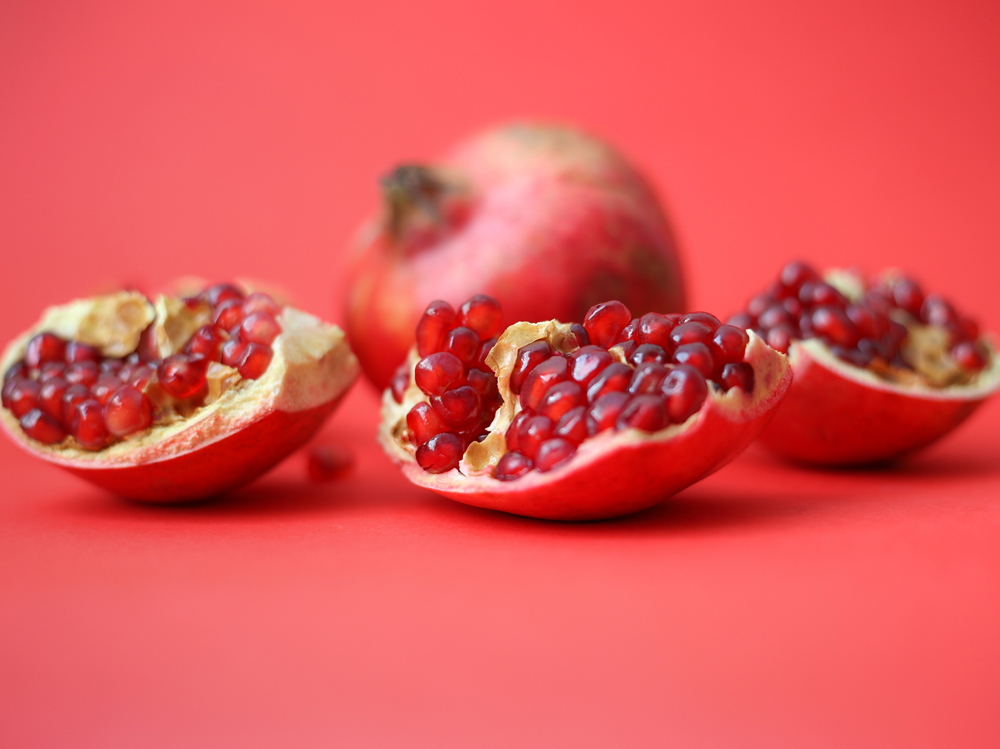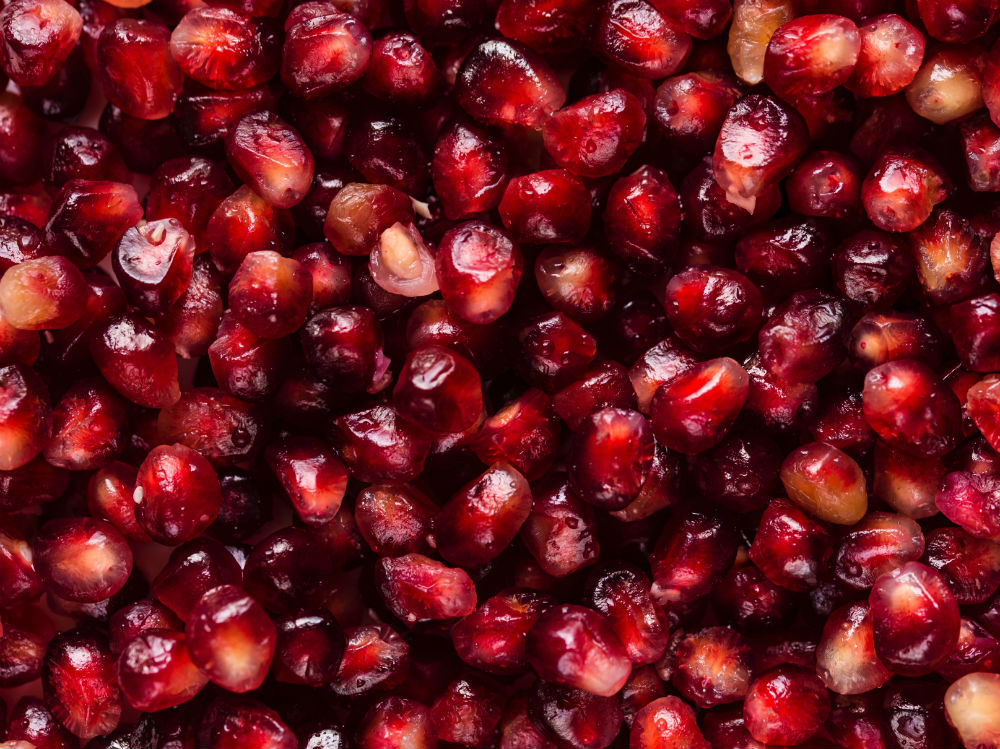

Pomegranate is among the quintessential winter fruits. Discover its benefits and why it’s worth adding to your table (more often).
According to many, eating pomegranate brings good luck. Indeed, according to an ancient belief, this fruit is a symbol of wealth and prosperity.
But the real benefit lies in its seeds, called arils, which are rich in minerals, vitamins, and above all, antioxidants with protective and scientifically recognized benefits.
Various studies on this fruit have highlighted that its consumption has extraordinary antioxidant effects, even surpassing those of green tea. But the advantages of this fruit are not limited to that.
Here are 5 Good Reasons to Eat Pomegranate

It’s super filling
Pomegranate is a fruit that has all the nutritional characteristics to be diet-friendly. It provides fibers that slow gastric emptying and the absorption of sugars in the blood, prolonging satiety.
De-bloating
The seeds of the pomegranate fruit are rich in water: they contain about 80 percent of their weight, which helps drain excess fluids. They also provide polyphenols, antioxidants that are allies of the proper functioning of the liver.

Combats fatigue
This fruit boasts an excellent remineralizing action. It provides many precious minerals to stay away from psychophysical fatigue, such as magnesium, phosphorus, and iron.
Pomegranate fights aging
Pomegranate is a fruit rich in anti-aging molecules. It provides high amounts of flavonoids, including anthocyanins and ascorbic acid, which counteract the pro-aging action of free radicals and protect against oxidative processes.
Good for the heart
The high amount of antioxidants present in the seeds, along with minerals such as potassium and magnesium, facilitate proper blood circulation and help prevent cardiovascular disorders.
**The 8 Foods You Should Eat to Become Smarter**
Photo Credits: Unsplash












